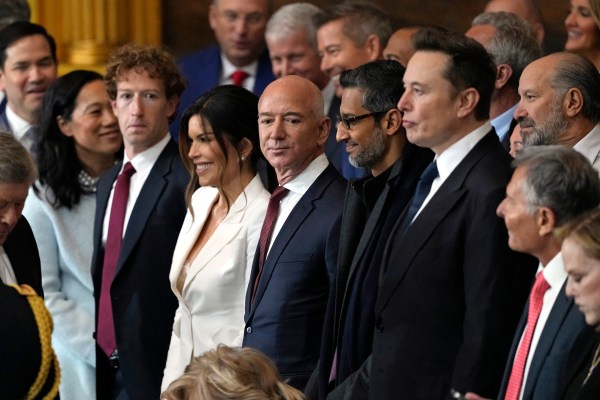I’ve got two cautiously optimistic thoughts to share. First, I think we’ve passed what you might call “peak woke.” Since I now hate the word “woke”—it’s a term twisted by the right to basically mean, “any thought even one inch to my left”—I need to define my terms. By saying that I mean that we’ve passed “peak woke,” I think we’ve seen the peak (for now) of left-wing institutional intolerance and illiberalism regarding race, sex, and religion.
Part of this feeling comes from the demonstrated inability of cancel culture to truly “cancel” most of its targets. My friend Bari Weiss, for example, is now far more influential and widely read than she was before her New York Times ordeal. Andrew Sullivan is thriving at Substack after being forced out at New York.
Moreover, key institutions are opening themselves up to dissenting voices. It’s incredibly heartening to see my friend Tish Harrison Warren, a devout orthodox Evangelical, now share space in the Times with Ross Douthat. In many spaces there is actually a hunger for a diversity of views.
I don’t want to paint too rosy a picture (and my optimism could be misplaced), but whereas intolerance once seemed ascendant, it now faces opposition, and that opposition is not coming only from the “anti-woke” right. No one would credibly call Dave Chappelle or Joe Rogan right-wing (emphasis on credibly), yet they’ve been among the most potent and influential American voices in support of a culture of free speech.
At the same time, I also think we’re seeing an emerging sexual counterrevolution. The consent culture of “sex positive” feminism, combined with ubiquitous porn, is starting to take an undeniable human toll, and more women (and men) are speaking out, including in the most elite outlets in the land.
Today’s New York Times features an incredibly poignant essay by Emma Camp, a recent graduate of the University of Virginia and an assistant editor at Reason. She focuses on the emptiness of consent alone as the touchstone of sexual morality. Consent is, of course, absolutely necessary, but it is not sufficient for human happiness and human flourishing. These are the key paragraphs:
When my friends and I talk about our love lives, we tend to share the same kinds of stories, almost ritualistically. Usually, we’ll be sitting on the floor of a dorm room or cheap apartment, drinking discount hard seltzer or boxed wine. As the night wears on, a little buzzed, we share the gory details of our fledgling romantic encounters. Between tales of bad Bumble dates, dance-floor make-outs and Olivia-Rodrigo-worthy breakups, almost all of us have had the same experience — a time we were asked explicitly for consent, and we wanted to say no, where we could have said no, and just didn’t.
Inevitably, someone will ask, “Well, did you say yes?” The answer is almost always that we did, but despite that, we’re left with an unshakable uneasiness. We said yes, but we don’t know why. These experiences are so confusing to talk about because, on paper, everything went perfectly. If you consent, you shouldn’t feel terrible after, right?
Camp joins Christine Emba in the Washington Post, Michelle Goldberg in the New York Times, and Helen Lewis in The Atlantic (among many others) who are writing to express the thoughts they hear from countless other women. Sex isn’t merely transactional. A consent culture both oversimplifies and oversexualizes human relationships. Here’s Emba in her Post essay this March:
Even when it goes well, sex is complicated. It involves our bodies, minds and emotions, our connections to each other and our deepest selves. Despite the (many, and popular) arguments that it’s only a physical act, it is clear to almost anyone who has had it that sex has vast consequences, some of which can last long after an encounter ends. Over the past several decades, our society has come to believe that consent—as a legal standard and a moral requirement—could somehow make our most unruly activity more manageable. But it was never going to be that easy.
Indeed it wasn’t. I’ve written about the inadequacies of consent culture and the challenges of ubiquitous porn many, many times, but there is something undeniably more powerful about reading critiques of contemporary sexual morality that arise not from traditional religious spaces, but from within secular feminism and and from elite media. That’s when you know the tide might be turning.
I’m reminded a bit of the argument about the decades-old argument about single parenting. Remember the dustup between Dan Quayle and the television show Murphy Brown? In a speech, Quayle critiqued the title character for bearing a child out of wedlock, and accused the show of “mocking the importance of fathers, by bearing a child alone, and calling it just another ‘lifestyle choice.’”
The firestorm that followed led to a huge New York Times front-page spread. And while single-parenting is complicated (every child is a blessing, and our nation and culture should do its best to help single-parent families flourish), there was once a live debate over whether single parent households were no better or worse for kids than two-parent families.
That debate is now about as over as any debate can be. While there are many, many children of single-parent households who do flourish (and there are many, many kids from two-parent households who flounder), in the aggregate kids tend to do much better when mom and dad stay together.
Even as early as 1993, outlets like The Atlantic were running pieces with the headline, “Dan Quayle was right.” In 2012, on the 20th anniversary of the controversy, the Washington Post ran a comprehensive piece with a similar headline, making the same case.
I bring this up because in every single argument and controversy under the sun, reality gets a vote. Culture wars are ultimately won or lost not by online arguments but through their real-world consequences, and the position that leads to greater human misery tends to lose.
To connect with the issues at the start of this piece, when speaking about the wave of intolerance that’s swept the academy, philanthropy, Hollywood, and much of mainstream media, I’ve told conservative friends that they have no idea how miserable it was making most of the people in those organizations. Something had to give, and the immiserated majority is going to be intimidated by the motivated minority for only so long.
When speaking of the reality of porn-influenced consent culture, there’s a similar dynamic in play. It’s immiserating people by the millions.
But the consequences of bad ideas—and the bad ideas themselves—persist long after the tide has turned. While Americans left and right are largely united in believing that we need to foster, encourage, and protect two-parent families (and indeed prosperous blue America often features the most stable families in America), it is very, very hard to recreate a family culture in communities after that culture has collapsed.
In other words, bad ideas—once set loose in a society—are hard to contain even when there’s a consensus in favor of containing them. The tide can turn against intolerance, but intolerance can still proliferate. The tide can turn against casual sex (even to the point where declining sexual activity leads to talk of a “sex recession”), and yet millions of young men and women can suffer the consequences of morally bankrupt actions and ideas.
I don’t mean to claim that cultural arguments have no effect. We shouldn’t simply stand by while bad ideas do their terrible work. Good faith engagement can both mitigate the damage when a misguided cultural trend is ascendant and provide a robust alternative moral framework when frustrated and alienated citizens seek a different path.
The key phrase above is “good faith.” When human beings turn from the broken path, they don’t want to be greeted by a taunting crowd that’s drinking their tears, but rather by a compassionate community that humbly recognizes its own mistakes. Peak woke should be replaced by tolerance and pluralism, consent culture by love and respect.
Two powerfully destructive cultural movements may now be on the decline. Hard lessons are being learned again. You can fight reality, but reality always wins.







Please note that we at The Dispatch hold ourselves, our work, and our commenters to a higher standard than other places on the internet. We welcome comments that foster genuine debate or discussion—including comments critical of us or our work—but responses that include ad hominem attacks on fellow Dispatch members or are intended to stoke fear and anger may be moderated.
With your membership, you only have the ability to comment on The Morning Dispatch articles. Consider upgrading to join the conversation everywhere.